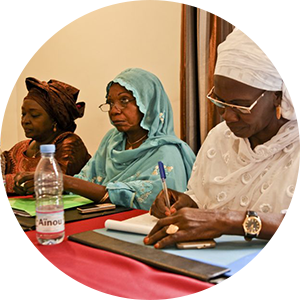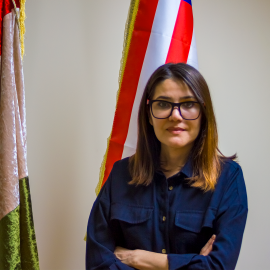
About
 Women worldwide face legal and social barriers that limit full economic and political participation, including business ownership, property rights, and access to finance. The Center for Women’s Economic Empowerment (CWEE) advances gender equality in emerging markets to build more inclusive, thriving economies and democracies that deliver for all citizens. Founded within the Center for International Private Enterprise (CIPE), CWEE consolidates nearly four decades of experience to promote women’s leadership and improve their economic conditions through private sector engagement, advocacy, and partnerships with governments and civil society. CWEE supports CIPE’s network of partners in more than 80 countries.
Women worldwide face legal and social barriers that limit full economic and political participation, including business ownership, property rights, and access to finance. The Center for Women’s Economic Empowerment (CWEE) advances gender equality in emerging markets to build more inclusive, thriving economies and democracies that deliver for all citizens. Founded within the Center for International Private Enterprise (CIPE), CWEE consolidates nearly four decades of experience to promote women’s leadership and improve their economic conditions through private sector engagement, advocacy, and partnerships with governments and civil society. CWEE supports CIPE’s network of partners in more than 80 countries.
![]()

Vision & Mission
The Center for Women’s Economic Empowerment (CWEE) empowers women to overcome economic inequality and lead private sector engagement, entrepreneurial ventures, and partnerships. CWEE strengthens communities and global networks of women to advocate for democratic reforms, facilitating more resilient and inclusive economies.
CWEE Works in Three Areas:
- Personal Empowerment: Providing space for businesswomen to develop entrepreneurial mindsets and leadership skills
- Community Building: Facilitating networking opportunities, collaborative spaces, and coalitions for advocacy
- Institutional Reform: Changing the business environment to reduce barriers and support policies that promote equity

Fostering Ecosystems for Entrepeneurship
Women’s Business Agendas
WBAs are vital advocacy tools for mobilizing the business community and civil society stakeholders. The process includes consensus building, setting legislative priorities, and communicating recommendations to policy makers via public-private dialogue. CIPE has helped launch successful models in many countries, including Bangladesh, Nigeria, Jordan, Pakistan, and Nicaragua. Download Flyer
Women’s Business Resource Centers
A lack of business skills and training are among the many challenges for women and girls in developing economies. Through its Women’s Business Resource Centers, CIPE and partners provide a safe place where women of all backgrounds can obtain educational opportunities with local universities and train with established entrepreneurs. The pilot program in Papua New Guinea, where domestic violence is high, offers security and free childcare. It is a model for business education and leadership initiatives around the globe. Download Flyer
Women in Business Networking
CIPE helps build capacity within both informal and established networks, through the support of women’s chambers of commerce and business associations. CIPE’s training programs have been duplicated in numerous countries, including several nations in Southeast Asia. CIPE and partners provide technical assistance and support in the form of small grants, as well as the opportunity for participants to exchange information and best practices, establish mentorship links between weaker and stronger organizations, and build relationships among female business owners and leaders. Download Flyer
Informational Flyer
This flyer details information on how the Center for Women’s Economic Empowerment supports women leaders globally and also provides some examples from each region around the world.
DownloadGlobal Impact and Reach
With initiatives and partnerships across the globe, CIPE’s Center for Women’s Economic Empowerment works on a variety of projects to increase women’s access to entrepreneurship opportunities, and ensure the sustainability of their projects. CIPE’s network spans more than 80 countries.
Bangladesh
As a result of Women’s Business Agenda programs, commercial bank loans to female entrepreneurs increased dramatically. Nearly 10,000 small and medium-sized enterprises owned by women have received loans totaling more than $93 million. Over 65% of the country’s banks have desks dedicated to female borrowers.
Sri Lanka
The country’s Central Bank directed commercial banks to allocate 5% of loan portfolios to women-owned small and medium-sized enterprises. With CIPE assistance, organizations partnered with a leading national bank to train female entrepreneurs on protocols to acquire credit and loan services from the formal banking sector.
Nepal
The Ministry of Industry established the landmark Women’s Entrepreneurship Development Fund at the urging of the South Asia Regional Network of Women’s Business Organizations. The Fund guarantees low-interest or collateral-free loans, enabling hundreds of women to start or sustain operations, scale up, and increase profitability.
Moldova
CIPE partnered under the Women and Girls Empowered (WAGE) program to support women’s business and civil society organizations to join efforts in collective action to advance economic opportunities for women and enable them to lead more resilient and independent lives, free from gender-based violence.
CIPE Blog Posts
Check out some of our latest blog posts about CIPE’s work on women’s economic empowerment. Read more on CIPE’s work empowering women.
Democracy That Delivers - Women's Economic Empowerment
Watch recent videos featuring women’s economic empowerment:
- Women’s Economic Empowerment for Tomorrow: Women Leaders in the Philippines
- How CIPE Works to Achieve Women’s Economic Empowerment in the Middle East & North Africa
Listen to recent episodes of CIPE’s weekly podcast, Democracy That Delivers, featuring discussions on women’s economic empowerment:
- #266: Women in Business during the Pandemic — Dispatches from Europe & Eurasia with Olga Melniciuc
- #262: Women in Business during the Pandemic — Dispatches from Europe & Eurasia with Angela Gladei
- #259: Women in Business during the Pandemic — Dispatches from Europe & Eurasia with Elen Manukyan
- #256: The Transformative Power of Entrepreneurship for Refugee Women with Nour Akkad
- #255: Women in Business during the Pandemic — Dispatches from Europe & Eurasia with Lilit Asatryan
- #252: Center for Women’s Economic Empowerment (CWEE) 3 Year Anniversary
- #251: The Future of Democracy with Solidarity Center’s Executive Director, Shawna Bader-Blau
- #250: Anti-Corruption’s Past, Present, & Future with Transparency International Chair Delia Ferreira
- #280: Women and Girls Empowered – Center for International Private Enterprise
More videos and podcasts on women’s economic empowerment.
Subscribe to the podcast on iTunes or on your Android device.
Like this podcast? Please review us on iTunes.
CIPE Resources
Take a look at our variety of resources on women’s economic empowerment. Further resources regarding women’s economic empowerment: annual reports, evaluations, guides & tools, and more.
CIPE Insights
Our insights on matters relating to women’s economic empowerment:
- Businesses Must Build Trust for Post-COVID Rebuilding
- Property Rights and Property Markets: Key Ingredients of Inclusive Development
- Power Dynamics: Four Elements That Democracy Support Must Address
- Empowering Women Through Policy Reform: Five Key Lessons
- CIPE Insights with Barb Langley
- Global Entrepreneurship Week: The Connection Between Entrepreneurship and Democracy
Department Leaders & Experts
See our experts below if you are interested in hosting a panel, writing an article, or running a news segment on this focus area.





















